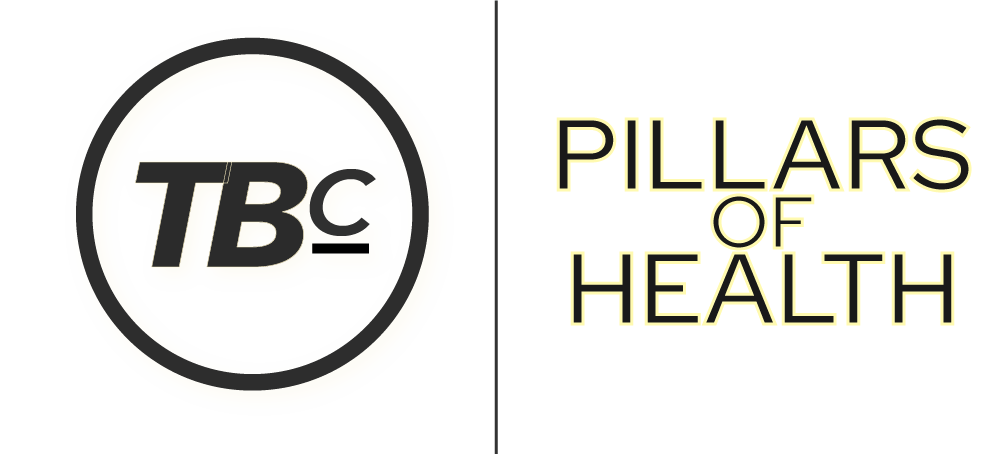
B1
Thiamin
- Energy metabolism
- Carbohydrate metabolism
- Energy for nervous system, heart, brain, muscles
- Blood sugar regulation
- Growth, development, & function of healthy cells
- Stored in the liver in tiny amounts
- Short half-life
- Created by healthy gut microbes
Info
Thiamin is among the most important B-Vitamins.
The safest and best form of B1 (thiamin) is thiamin HCl. Other forms have more risks and downsides: thiamin nitrate can raise levels of nitrates to unhealthy levels, and TTFD is a fat-soluble form that can raise B1 levels extraordinarily high.
TTFD is only advised for those with genetic polymorphisms that prevent them from properly utilizing B1.
RDV
- 1.2mg/day
Great Food Sources
- Meat (1 serving = 35-50% DV)
B1’s Partners
All other B-vitamins
Sodium
B1 Symptoms
Deficiency
- Fatigue
- Unstable blood sugar
- Depression
- Poor adrenal function
- Digestive problems
- Nausea
Excess
- Insomnia
- Heart palpitations
- High blood pressure
- Mood dysregulation
To Raise
B1 levelS
- Increase B1 supplementation
- Optimize co-factors: All B-vitamins
- Improve gut & liver health
to LOWER
B1 levels
B1 levels should fall within days unless a fat-soluble form has been taken long-term.
- Limit or avoid B1 supplementation — especially fat-soluble B1
- Optimize co-factors: All B-vitamins
When?
Daytime
- B1 can be energizing — take early in the day.
- Most people don’t need B1 everyday.
- Consider, getting all B-vitamins in balanced doses via low-dose multi-vitamin — while rotating individual B-vitamins through the week.

B2
Riboflavin
- Carbohydrate, protein, & fat metabolism
- Energy levels
- Recycling glutathione
- Converting tryptophan to niacin
- Vitamin B6 metabolism
- Proper homocysteine levels
- FMD & FAN (coenzymes) production
- Only 27 mg can be absorbed at a time
- Important in migraine & cancer prevention
Info
Perhaps the second most critical B-vitamin to supplement when recovering and optimizing health.
B2 does occur in some foods, but not in huge amounts. It also tends to become depleted easily in illness.
RDV:
- 1g/day
*based on average-size adult.
GOOD Sources:
- whole grains, dairy, plants
B2’s Partner
All other B-Vitamins
Other Co-factors:
Sodium
B2 Symptoms
Deficiency
- Cracked lips/mouth
- Inflammed tongue
- Insomnia
- Light sensitivity
- Neurological symptoms (dizziness)
- Fatigue
- Digestive issues
Excess
- Fatigue
- Insomnia
- Nausea
- Low blood pressure
To Raise
B2 levelS
- Supplement B2 (B2 is easily destroyed in food by light, heat)
to LOWER
B2 levels
- Avoid B2 supplements
- Being a water-soluble vitamin, high B2 levels can decline within days
When?
Morning to early afternoon
- Some say B2 can be taken in the afternoon or evening
- To be safe, stick to lunchtime or earlier.
Product
I no longer recommend the activated form of B2, Riboflavin 5′ Phosphate, for most people, as it is too intense and can create imbalances and interolances.

B3
Niacin
- The function of hundreds of enzymes
- Nearly all metabolic reduction/oxidation (for energy)
- Maintaining gene integrity & expression
- Affects cholesterol
- Insulin sensitivity (blood sugar control)
- Cardiovascular (endothelial) health
- Improves inflammation
- Partial precursor of essential skin barrier fatty acids called ceramides
- Collagen synthesis
- Has antimicrobial properties
Info
A fascinating B-vitamin with many unique properties.
Niacin comes in two supplemental forms: niacin and niacinamide.
RDV:
- 15mg/day
*based on average-size adult.
Great Sources:
- liver
- meat
- peanuts
B3’s Partner
All other B-vitamins
B3 Symptoms
Deficiency
- Fatigue
- Poor circulation
- Canker sores
- Stomach issues
- Depression
- Pellagra
- Nausea
- Vomiting
- Skin health disorders
- Niacin can cause flushing skin in high doses (usually 50mg+)
Excess
- Insomnia
- Headaches
- Unstable blood sugar
- Sweating
- Joint pain
- PMS symptoms
To Raise
B3 levelS
- Supplement B3 wisely
to LOWER
B3 levels
- Avoid B3 supplementation
- Being water-soluble, B3 levels can fall within days
When?
Morning
- With food is preferable
- B-vitamins are best taken in the morning
- Some say evening niacin is tolerable — but this isn’t true for everyone
Product
For many, smaller, reasonable doses of niacinamide may be optimal to avoid long-term imbalances.
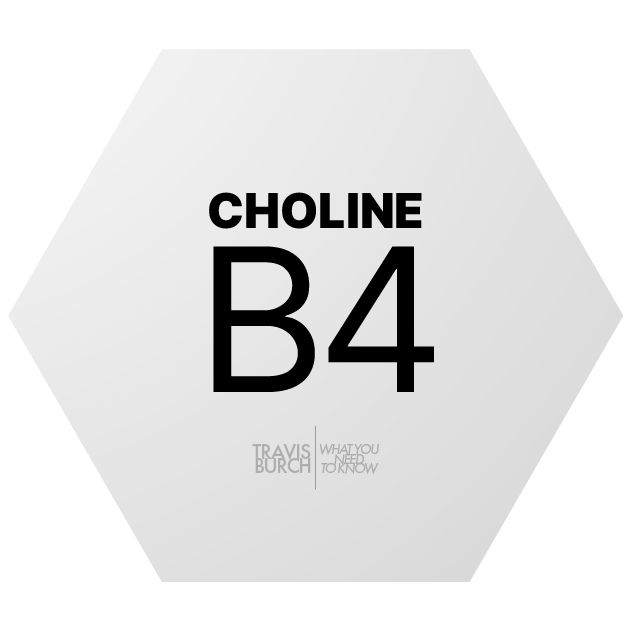
B4
Choline
- Cell membrane integrity (phospholipids: phosphatidylcholine & sphingomyelin)
- Acetylcholine production (mood, memory, muscle control, brain function and nervous system function)
- Gene expression
- Cell membrane signaling
- Fat metabolism
- Early brain development
- Methyl donor
Info
Not technically considered a B-vitamin anymore, but rich with health benefits for the brain, nervous system, liver, hormones, cholesterol, and more.
It’s important to see it as an analogue of the B-vitamins — which is why it can be helpful to think of it as B4.
Take choline with inositol, as each taken separately can cause unwanted issues with liver health.
RDV:
- 500mg/day
*based on average-size adult.
Great Sources:
- eggs
Meat has about 20% DV of choline per serving.
Choline’s Partner
Inositol
All other B-vitamins
B4 Symptoms
Deficiency
- Liver damage
- Muscle damage
- Elevated risk for diabetes
- Elevated risk for cystic fibrosis
Excess
- Emotional upset, or depression
- Sweating
- Vomiting
- Excessive salivation
- Body odor
To Raise
choline levelS
- Supplement choline wisely
to LOWER
choline levels
- Avoid B2 supplementation
- Being water-soluble, B2 levels can fall within days
When?
Morning
- With food is preferable
- B-vitamins are best taken in the morning
Product
*It’s likely best to take choline and inositol together. This product makes that easy.

B5
Pantothene
- Essential for coenzyme A (anabolism and catabolism)
- Required for fatty acid synthesis
Info
RDV:
- 5mg/day
*based on average-size adult.
Great Sources:
- Liver
- Shitake mushrooms
- Sunflower seeds
B5’s Partner
All other B-vitamins
B5 Symptoms
Deficiency
- Insomnia
- Burning feet
- Join pain
- Edema
- Kidney stones
Excess
- Edema
- Fatigue
- Joint pain
- Poor protein metabolism
- Low phosphorous levels
- Elevated VLDL triglycerides
- Calcification
- Digestive disorders
To Raise
B5 levelS
- Supplement B5 wisely
to LOWER
B5 levels
- Avoid B5 supplementation
- Limit liver intake
When?
Morning
- With food is preferable
- B-vitamins are best taken in the morning
- Some say B5 is tolerable in the evening — but this isn’t true for everyone
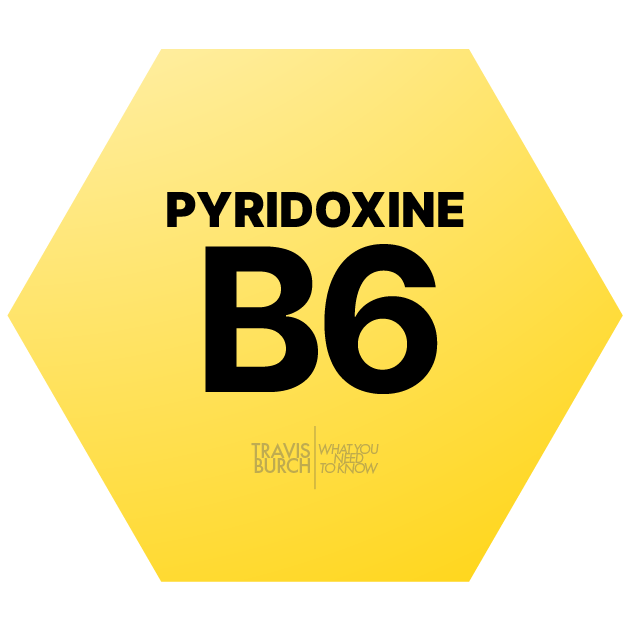
B6
Pyridoxine
- Necessary for over 100 enzyme reactions
- Especially necessary for protein metabolism
- Important for amino acid, carbohydrate, and fat metabolism
- Required for cognitive development and biosynthesis of neurotransmitters
- Enables glycogenolysis (turning stored glycogen into glucose)
- Promotes immunity
Info
RDV:
- 1.3mg/day
*based on average-size adult.
Good Sources:
- Liver (60% DV)
- Meats (25%DV)
B6’s Partner
All other B-vitamins
B6 Symptoms
Deficiency
- Pins and needles in extremities, or numbness
- Fatigue
- Depression
- Insomnia
- Mental instability
- Heavy periods
- Anemia
- Migraine
- Hypothyroidism
Excess
- Mineral imbalances
- Restless sensation
- Insomnia
- Extra dreaming during sleep
- Hormone imbalance (estrogen/prolactin)
To Raise
B6 levelS
- Supplement B6 wisely
to LOWER
B6 levels
- Avoid B6 supplementation
- Limit liver intake
- Levels will come down normally due to water-soluble nature of B-vitamins
When?
Morning or lunch
- With food is preferable
- B-vitamins are best taken in the morning
- Some say B6 is tolerable in the evening — but this isn’t true for everyone
Products
I no longer recommend pure P-5-P products, the activated form of B6, because this form is too intense and could lead to nutritional imbalances.
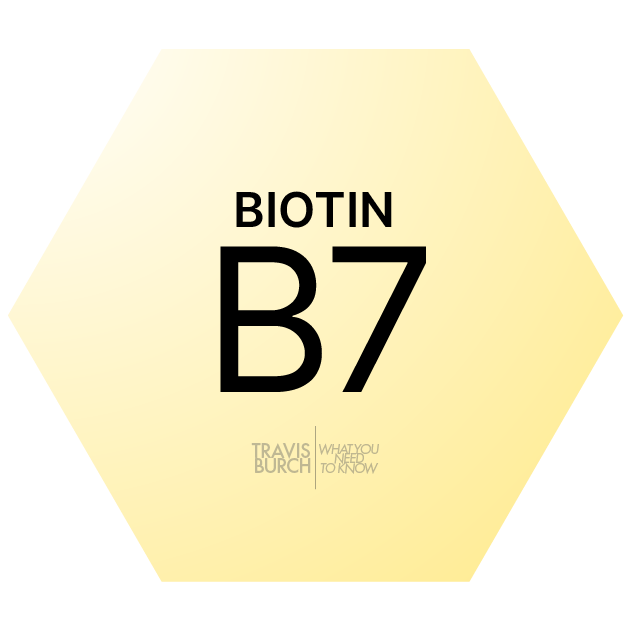
B7
Biotin
- Critical for enzymes that metabolize carbs, proteins, and fat
- Involved in cell signaling
- Important for histone modifications (including methylation)
- Essential for gene regulation
Info
Biotin is essential for more than just hair growth!
RDV:
- 30mcg/day
*based on average-size adult.
Good Sources:
- Liver (3 oz = 100% DV)
B7’s Partner
All other B-vitamins
B7 Symptoms
Deficiency
- Skin issues
- Hair loss
- Fatigue
- Poor appetite
- Muscle pain
- Hypoglycemia
- High total cholesterol
- Depression
Excess
- Weak insulin production
- Vitamin C deficiency
- Pronounced B6 deficiency
- Skin issues
- High blood sugar
To Raise
B7 levelS
- Supplement B7 wisely
to LOWER
B7 levels
- Avoid B7 supplementation
- Levels will come down normally due to water-soluble nature of B-vitamins
When?
Morning or lunch
- With food is preferable
- B-vitamins are best taken in the morning
- Some say B7 is tolerable in the evening — but this isn’t true for everyone

B8
Inositol
- Insulin-like properties
- Blood sugar regulation
- Component of cell membranes
- Hormones controlling mood and depression (dopamine & serotonin)
- Improves thyroid (T4) levels
Info
Not technically considered a B-vitamin anymore, but rich with health benefits for the brain, cells, hormones, and metabolism/metabolic syndrome.
It’s important to see it as an analogue of the B-vitamins — which is why it can be helpful to think of inositol as B8.
Take inositol with choline, as each taken separately can cause unwanted issues with liver health.
RDV:
- ?
*based on average-size adult.
Good Sources:
- Beans
- Grapefruit juice
B8’s Partner
Choline, All other B-vitamins
B8 Symptoms
Deficiency
- Hair loss
- Constipation
- Skin issues
- Insomnia
Excess
- Fatigue
- Headache
- Stomach pain
- Nausea
- Depression
- Insomnia
To Raise
B8 levelS
- Supplement B8 wisely
to LOWER
B8 levels
- Avoid B8 supplementation
- Levels will come down normally due to water-soluble nature of B-vitamins
When?
Morning or lunch
- With food is preferable
- B-vitamins are best taken in the morning
Product
*It’s likely best to take choline and inositol together. This product makes that easy.
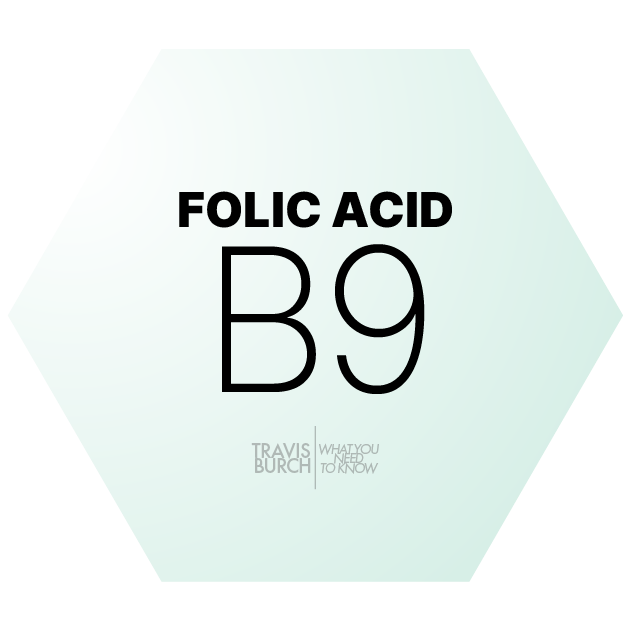
B9
Folate
- Cell division
- Converts homocysteine to methionine
- Methylation
Info
Folate is a double-edged sword:
- found in excess in fortified-foods
- absent in whole foods and in those who struggle to methylate (MTHFR, etc).
RDV:
- 400mcg/day
*based on average-size adult.
Good Sources:
- Liver (3 oz = 54% DV)
- Spinach (1/2 cup = 33% DV)
B9’s Partner
All other B-vitamins
B9 Symptoms
Deficiency
- Fatigue
- Insomnia
- Cognitive issues
- Irritability
- Depression
- High blood pressure
- Anemia (hemolytic, megaloblastic)
Excess
- Bloating
- No appetite
- High cholesterol
- Zinc and potassium deficiency
- B12 deficiency
- Respiratory issues
To Raise
B9 levelS
- Supplement B9 wisely
to LOWER
B9 levels
- Avoid B9 supplementation
When?
Morning or lunch
- With food is preferable
- B-vitamins are best taken in the morning
Products
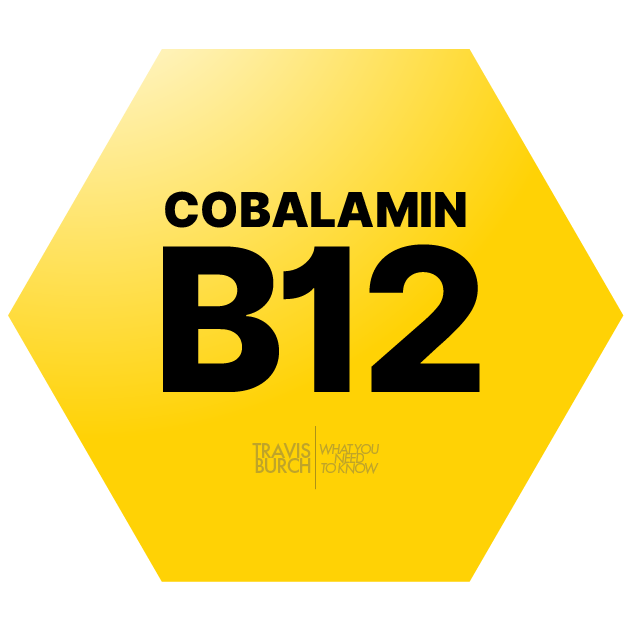
B12
Cobalamin
- Red blood cell formation
- Neurological function
- DNA synthesis
- Methylation
- Protein & fat metabolism
- Hemoglobin synthesis
Info
B12 is a critical B-vitamin, necessary for detoxification and energy production.
RDV:
- 2.4mcg/day
*based on average-size adult.
Good Sources:
- Clams (3 oz = 3,500% DV)
- Liver (30z =- 3,000% DV)
- Fish and animal meat (60-200% DV per serving)
B12’s Partner
B6, B9, All other B-vitamins
B12 Symptoms
Deficiency
- Fatigue
- Depression
- Shortness of breath
- No appetite
- Weight troubles
- Sore tongue
- Dementia
- Nerve damage
- Pernicious anemia
Excess
- Can deplete B9
- Insomnia
- Skin issues
- Liver issues
- Kidney issues
- Anxiety
To Raise
B12 levelS
- Supplement B12 wisely
to LOWER
B12 levels
- Avoid B12 supplementation
- Levels will come down quickly due to water-soluble nature of B-vitamins
When?
Morning or lunch
- With food is preferable
- B-vitamins are best taken in the morning
Products
Choose lozenges for optimal absorption through the oral tissues, rather than the gut, where absorption is often compromised.
Medical Disclaimer: This information is not intended to diagnose, treat, or prevent any disease. Supplement nutrients at your own risk — they are extremely capable of affecting change within your body, for better or for worse.
